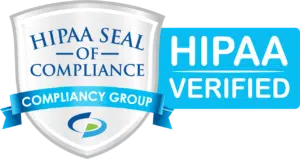It’s no secret the coronavirus (COVID-19) pandemic has left home care agencies scrambling to address a variety of challenges. The most obvious include the implementation of infection-control protocols, new social-distancing logistics and staffing complexities that further limited caregiver resources. But as the crisis drags on, many companies are also facing another problem: Their marketing representatives are restricted from making sales calls.
While all good leaders prioritize objectives, and caregiver/client safety rightly sits at the top of the list, it’s a mistake to forego sales activity altogether. Momentum matters, and a loss of sales inertia now can spell trouble further down the road. Companies that let all marketing efforts grind to a halt will ultimately regret their complacency.
Here are actionable ways home care agencies can continue marketing efforts despite social-distancing restrictions.
“Virtual Marketing”
Many senior care leaders are familiar with online marketing strategies and the use of social media. However, “virtual marketing” in the era of coronavirus requires even more creative thinking. Home care agencies need to find ways to virtually replicate the sales call experience.
Perhaps a sales representative normally visits a certain hospital case management office on Wednesday mornings. Might she contact her hospital associate by phone, email or text to coordinate a “no-contact” coffee drop? Obviously, the representative can also leave a note, brochures and other print materials with the coffee. But she can even take it a step further…
Amazon tablets can be purchased online for as little as $50. Given that a typical coffee drop consumes ~$30 of a marketing budget, a one-time tablet expenditure actually seems quite cost effective. The device can be pre-loaded with a special coronavirus video message outlining infection-control protocols, agency availability throughout the crisis and other company distinctions. The tablet might also include any relevant marketing sheets and helpful contact information.
Once delivered, the device can even be used as an ongoing communication “lifeline” for valuable referral sources. Representatives can advise their contacts to freely use the tablet for video conferences or to hand out to patients for virtual home care assessments. Finally, the device can be leveraged as a tool for a future “virtual in-service.”
*Please note companies must remember to abide by all state and federal laws and should be careful not to violate anti-kickback and gift-giving statutes. Some hospitals and facilities might also have their own policies that are even more limiting. Agencies should make it clear the tablets are strictly for business use within the hospital or facility. They should also review relevant laws and consult an attorney with any questions.
Website Updates
Most home care agencies have now updated their websites with coronavirus statements. However, sales and marketing teams can use their free time to further improve general website messaging. Companies usually have a variety of lower-priority projects on the backburner. Now’s a good time to put those front and center!
Some websites do a good job of presenting services and features but don’t clearly display beneficial distinctions. Why not leverage the expertise of field-based sales teams to highlight:
- Company advantages over other agencies (side-by-side comparison charts)
- Chronic-disease programs
- SEO-focused blogging
- Community reviews/endorsements
- Educational videos
In-house marketing teams are experts in writing, social media, website layout and SEO. However, they often lack the hands on experience of frontline salespeople. Home care agencies are wise to use this rare opportunity to connect these two teams to better synchronize company messaging.
Contracts & Partnerships
Many home care leaders seek to diversify revenue streams through much-coveted payer contracts. However, they realize these partnerships can take months or years to secure. And agencies can’t neglect daily operations and sales activities in hopes of finding a pot of gold at the end of a rainbow.
But with the hold on in-person sales calls, now might be a good time for home care agencies to re-focus efforts on contracts and partnerships. After all, most solicitation with high-level decision makers is conducted by phone and email. So, there’s really no reason not to ramp up the efforts!
Leaders can task sales teams with developing lists of possible payer contracts and provider partnerships. They can then create call scripts and email templates for targeted solicitation. Of course, the primary goal of any such outreach is usually to secure face-to-face meetings. However, coronavirus social-distancing might require a slightly-modified pitch. Representatives can instead ask to schedule video calls or volunteer slide deck presentations via webinar.
Proven home care contract and partnership opportunities include:
- VA Hospitals (Homemaker Programs)
- Medicare Advantage (MA) Plans
- Hospital-funded “readmission prevention” partnerships
- State-funded disability services contracts
- Assisted living facility partnerships
The silver lining in focusing on big-picture contract and partnership opportunities is that many competitors are less engaged at the moment. Therefore, agencies that strike while the iron’s hot may actually enjoy greater success. A video-based meeting can even be complimented with a free, no-contact lunch delivery for a true “in-service” experience!
New Value-Add Distinctions
Most transparent home care veterans will acknowledge messaging has stagnated in recent years. Agencies usually provide similar services and cite identical credentials, like insurance policies, state licensing and caregiver background checks. Perhaps now’s a good time for caregiver companies to work on adding distinct value to their services.
A refinement of current messaging can be a good starting point for home care agencies seeking to stand out from the crowd. But words only go so far. Leaders might also consider taking more actionable steps, like fortifying caregiver training programs, streamlining referral processes and improving communication and technology platforms.
Once tangible actions are taken on the operational front, leaders should work to create appropriate value-add messaging for use in marketing and sales. In-house marketing teams can update company websites and launch newsletter and social media campaigns. And sales representatives can update referral sources and incorporate the new messaging into client assessment packets.
Value-add distinctions that resonate with referral sources and prospective clients include:
- New caregiver training programs
- Improved technology offerings
- Hospital readmission reduction programs
- Expanded service offerings (transportation, concierge services, food delivery, etc.)
- Community partnerships
- Chronic-disease programs
Parting Thoughts
At the end of the day, it’s fair to say the coronavirus crisis caught most senior care industry professionals off guard. Truthfully, nobody could have foreseen the far-reaching effects on day-to-day business operations and care delivery. Most home care agencies are now scrambling to mitigate infection risk while still ensuring reliable care delivery. But wise leaders must also be careful not to sideline sales and marketing efforts. Forward-thinking companies can gain market share even in these troubling times!
If you’re an agency seeking real-world home care and home health marketing solutions for increased growth, be sure to connect with the industry’s most-trusted resource today!











